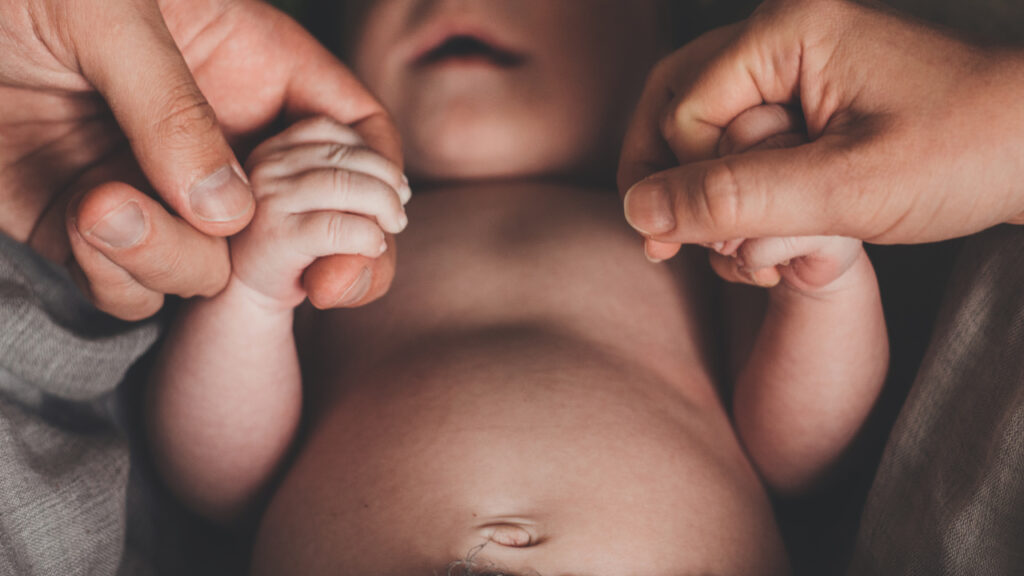
On Her Own Terms: Women Over 40 Are Having More Babies Than Teens for the First Time in U.S. History
It’s official: more women over 40 had babies in 2023 than teenagers did. It’s a seismic shift in reproductive trends and one that tells a much larger story. However, this data goes beyond age. It’s about women reclaiming their autonomy, their time, and their terms.
According to a new report from the CDC’s National Center for Health Statistics, 2023 marked the first time in U.S. history that births to women 40 and older outpaced teen births. And the numbers are pretty wild. While teen births dropped by 73% since 1990, births to women over 40 increased by 193% during the same period.
Teen pregnancies are finally dropping
In 1990, adolescents accounted for almost 13% of all births in the United States. By 2023, that number dropped to just 4%, according to the CDC report. Even more striking: the fertility rate for girls ages 10 to 14 is now close to zero. Family demographer Elizabeth Wildsmith said the drop is “a success story” from a public health perspective.
Several reasons have contributed to the shift. In states like California, New York, and New Jersey, comprehensive sex education, access to birth control, and no-copay contraception under the Affordable Care Act have played a major role. In Mississippi, where teen birth rates remain high, doctors are still seeing the impact of injectable birth control methods like Depo Provera.
Women over 40 are flipping the script on motherhood
While teen birth rates are falling, another group is rising fast: women over 40. In 2023, 4.1% of all births were to women in this age group, barely edging out the 4.0% to teenagers. The CDC reports that since 1990, fertility rates have increased 71% among women ages 35 to 39 and 127% among those ages 40 to 44.
So why the shift?
Experts point to a combination of changing values, better access to fertility technology, and the rising cost of living. “All of those conditions shape when people want to start having children,” Wildsmith told NBC News. As more women prioritize careers, education, and finding the right partner, the definition of “the right time” to have a baby has evolved.
Medical advances are making motherhood after 40 safer
Yes, there are risks to pregnancy after 40. Doctors cite higher chances of pre-eclampsia, gestational diabetes, and genetic conditions like Down syndrome. But new medical protocols are helping reduce complications. Dr. Arianna Cassidy, a maternal-fetal specialist at UCSF, said the risk of pre-eclampsia doubles for women over 40, but remains under 10%. “There’s not a switch that goes on at age 35,” she explained in an interview with NBC News. “It’s more of a continuum.”
Preventative care, such as baby aspirin, routine screenings, and early interventions, has significantly improved outcomes. And fertility treatments like IVF and egg freezing are making pregnancy after 40 more accessible than ever.
For women over 40, motherhood can feel more grounded
Similarly, more parents are speaking openly about why they waited. Katherine Rose Woller, a mom who had her first child later in life, told Parents.com: “I feel more confident in my ability to parent intuitively, remain patient, and block out distractions.”
Others shared similar reasons. Some wanted financial security. Others waited to find the right partner. Some just didn’t feel emotionally ready in their 20s or 30s. Stef Arck-Baynes, CEO of Achieving Good Communications, said, “I definitely didn’t want a child unless or until I had a partner I loved and trusted, who could share the financial, emotional, and mental load with me.”
The fertility rate is still dropping, and that’s okay
Despite the rise in later-in-life births, the U.S. fertility rate overall is still declining. In 2023, the average number of children born to a woman dropped to 1.62. That’s well below the replacement level of 2.1. And while that statistic has triggered alarm in some political circles, many experts say it’s just a reflection of a new norm.
Families are smaller. Parenthood starts later. And increasingly, it’s a choice, not a default.
Women over 40 are redefining what parenthood looks like
Chanel McGowan, a Georgia mom, told 11Alive she had her first child at 27 and gave birth again at 44. She said being older made her more patient and intentional. “I know so much more, but I’m also grounded in who I am,” she said. “Not always the energy, but I got time.”
Her experience echoes a broader cultural shift. “Some studies have suggested that brain health and longevity may be improved in those who have children later in life,” Dr. Dallas Reed, an OB-GYN at Tufts, told Parents.com. Meanwhile, older parents often have healthier lifestyles, less alcohol use, and more engagement in prenatal care.
This isn’t a one-size-fits-all trend. However, the data suggests one thing: the timeline for motherhood is shifting. And more women than ever are taking the reins.




